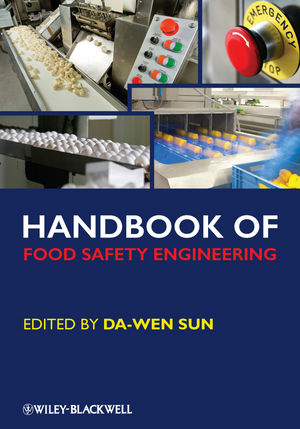Food and Agriculture Are Domains of War: Part 1

In future global conflicts, agriculture and the food supply will be targets of our adversaries. Both government and industry need a detailed and informed inventory of potential future threats to food and agriculture. Both constituencies should share the lists, carefully compare and contrast results, and, most importantly, ask why they are so divergent.
A prediction here—the lists will be dramatically divergent. That is a problem. The federal government would claim its inventory is more informed because the inventory already exists and is continually updated as new threats are identified. And many in agribusiness would claim, protecting the nation is the government’s work. Government, however, knows nothing about how the food industry works and how to put a food product on consumers’ tables. At the same time, industry knows nothing about the real threats and cannot adequately prepare.
Because of this lack of knowledge, the constituencies themselves complicate the defense situation. Lack of coordination and collaboration lead to wasted efforts, redundancies and increased costs paid for by taxpayers. Both constituencies should ask whether the nation’s current food and agriculture defense system is adequate to the threats we face.
For this article, “conflict” refers to a violent military clash between the U.S. and its allies and one of the “near peer” (i.e., China and Russia) or lower tier (Iran and North Korea) nations. In other words, an actual shooting war—Army against Army, Navy against Navy, and Air Force against Air Force. This first article will focus on a worst case situation, a high-consequence, lower-probability series of developments.
Farfetched? Unfortunately, not necessarily. Nothing of that scale is imminent, and I am not warning you that something is about to happen. This is a hypothetical designed to make you think about your company, its assets, its people, and your brand should something very bad happen in the world. But should the nation one day go to war, you and your company will be on the front lines—and there is increasing evidence that our nation’s adversaries are preparing to confront the U.S. militarily. At the least, we are entering a sustained period of a renewed Cold War, which will change the way we do business.
What do I mean when I say the U.S. food supply and the agricultural system that support it will be domains of war? Put simply, the U.S. mainland would be attacked by adversaries, perhaps acting in concert (i.e., China and Russia) to destroy our nation’s critical infrastructures, including food and agriculture, as a way to cause military, political, and economic collapse. Our adversaries wonder if achieving those goals would cause us to capitulate or strike back. We intend to keep them wondering, assuming that we must always be prepared. That’s why we are heading, at least for now, into a new Cold War and not a hot one.
Scary? This scenario fully realized is beyond nightmarish. What we are talking about here is World War III, apocalyptic in its implications. And war is not impossible. A reasonable estimate might be a probability of 20 percent or less. So what potential flashpoint might touch off such a scenario? Taiwan comes to mind.
The President of China since March of 2013 and now “Paramount Leader” and General Secretary of the Central Committee is Xi Jinping, a leader increasingly reminiscent of Mao Zedong, the founding father of the People’s Republic of China, in his ability to consolidate power, eliminate political rivals, promote a cult of personality, and exercise power. Xi Jinping is a very dangerous man, and it appears he wants at some point to militarily take on the U.S., pushing us out of the South China Sea.
The military and strategic reasoning behind my assumptions are outside the bounds of this article. Suffice it to say that both strategic and military-supported logic back this call for the government and industry to work together in identifying vulnerabilities.
The tone of China’s rhetoric and actions has become more strident over the last decade. China has developed its own military technology as well as gaining from the government/military sanctioned theft of intellectual property from the U.S. and elsewhere. Xi Jinping’s recent recalcitrant posturing toward Taiwan is very real but to date has not translated into significant military action. If military action where to occur, however, actions and reactions would rapidly unfold.
China cannot invade Taiwan without simultaneously trying to divert and degrade U.S. military capabilities. On the home front, first would come cyberattacks and economic and “information warfare,” in other words, propaganda attacking the credibility of political leaders and causing panic through rumor and false information. If our military were to respond, the targeting of critical infrastructures (including food and agriculture) would follow.
These attacks would be designed to cause a cascade of multi-point failures across critical infrastructures, with one failure leading to another. For example, cyber failures would induce water failures, communication failures, and transportation failures. Food processing would come to a screeching halt. Damage to the banking system and overall economy would be far greater than imagined. Stocks and bonds would tumble so far and with such rapidity that the Stock Exchange would likely close. C-level executives, be warned: Your company’s brand value would most definitely be damaged. The government would not be able to help much, since they would be assuming a war posture. You will be on your own.
Later, one could expect attacks on the agricultural system through the introduction of disease agents—agroterrorism. Unlike natural disease outbreaks or even foreign disease outbreaks, agroterrorism likely would entail multiple pathogens, crossing animal and plant species, geographically dispersed over large portions of rural America. Assume that foreign agents are here, including those in “sleeper cells” who would spread both agroterrorism and bioterrorism agents.
Rumors designed to induce panic would be everywhere on social media. Our adversaries would exacerbate the panic by duping some press outlets to produce sensationalized articles filled with conjecture and largely devoid of fact. Again, your company will be largely on its own here and will need accurate and actionable Intelligence.
The good news is that the U.S. would not stand idly by. We are an exceedingly big dog, the biggest in the world, and in an existential fight, we are more than capable of biting very hard. As for food and agriculture, do not be complacent. In time of war, the government and military are solely responsible for the survival of our nation and not the survival of your company or profits. No one is going to come and rescue you.
Some good news facts:
• The U.S. military remains the most powerful in the world.
• Our nation has many allies and partners, some quiet about their relationship to us. Capabilities reside in these places.
• China is trying to build trust around the world with various economic aid packages, including the often-touted “Belt and Road” Initiative. Only time will tell whether this endeavor will be successful. As for Russia, investment in other countries is very limited, and few would praise Russia for its economic or agricultural development efforts. Other nations tend to fear Russia because of its tendency to be heavy-handed. This approach builds resentment. But then again, the nation has the second largest arsenal of nuclear weapons behind the United States.
• Our nation has military technology that largely remains preeminent, and we still lead in innovation. Chinese and Russian technological advances often rely on stolen U.S. intellectual property. This theft may decrease their research and development costs and shorten procurement cycles, but is not a sustainable strategy. Continual innovation is required in a sustained conflict.
• Our economy is very strong and growing stronger as regulatory reform continues. Manufacturing capacity is coming back to the U.S., which is essential in time of war. We also export both oil and food.
• The U.S. owns the bank, and China is the branch bank that holds much of our debt. Some economists would argue that makes our nation vulnerable. If China called that debt in time of war, however, the U.S. would not only say, “NO!”, but would also simultaneously ensure the Chinese economy would collapse by cancellation of debt owed to China. The influx of U.S. dollars would stop almost instantly, which would be catastrophic to China and the world economy.
• The United States has in the last couple of years been coming to terms with evolving threats. Currently all the threat nations know that changes here are closing windows of opportunity. As adversaries bite at our heels with cyberattacks, intellectual property theft, and information/psychological operations campaigns, we will continue to find solutions.
We as a nation have to change the way we do business, the way we ingest information, and the way we protect ourselves. Decision-makers everywhere also need to start thinking in a different way, realizing they are largely responsible for their own destinies. Our trend on these matters is variable depending on the company and its leadership, but in general appears to be in a positive direction. We are moving forward, realizing that complacency is not an option.
Robert A. Norton, Ph.D., is chair of the Auburn University Food System Institute’s Food and Water Defense Working Group (aufsi.auburn.edu/fooddefense). He is a long-time consultant to the U.S. military, federal, and state law enforcement agencies. His blog, Bob Norton’s Food Defense Blog, can be found at aufsi.auburn.edu/fooddefense/blog/. He can be reached at nortora@auburn.edu or by phone at 334.844.7562.
Disclaimer: Dr. Norton and production of this article were supported by the Alabama Agricultural Experiment Stations and the Hatch program of the National Institute of Food and Agriculture (NIFA), U.S. Department of Agriculture (USDA). The article represents the personal opinion of Dr. Norton and does not reflect official policy or statutory related opinion of the federal government, NIFA or USDA.
Looking for a reprint of this article?
From high-res PDFs to custom plaques, order your copy today!









